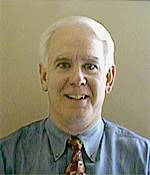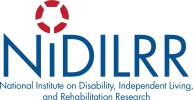![]()

Brain Injury Health & Wellness Classes
The Brain Northwest’s Brain Injury Health & Wellness classes are a result of the University of Washington’s Traumatic Brain Injury Model System joining forces.
The classes are always free and provide non-clinical, wellness, and life skills information specifically designed for people who have had a brain injury and their loved ones. Slides and handouts from the classes are below. We hope these classes have provided opportunities to acquire new skills, socialize, and encourage overall health and well-being.
Past Classes
Disability and Self-Advocacy: Why, Who, When, and How?
Facilitated by Silas James, MPA
This class explored the reality of unsolicited actions or comments that people with disabilities regularly deal with. Microaggressions and other options to respond were considered and discussed as well as a method for identifying productive ways to respond when appropriate. At the end of the discussion, a tool was provided to build skills in self-advocacy by learning from both mistakes and successes.
Silas James is a disabled advocate who has worked in brain injury research for more than 15 years. He was a chair of the Seattle Disability Commission, has created several TBI InfoComics, and co-teaches a class on disability allyship for future health care professionals at UW. You can find his work at TBI InfoComics (washington.edu)
Talking to People about your Brain Injury
Facilitated by Whitney Morean, PhD
This class discussed how the type of relationship you have to a person impacts what and how you talk with people about your brain injury. Additionally, some example scripts were provided for how to talk to others depending on the relationship and context.
Dr. Morean is a disabled psychology fellow at University of Washington. She obtained her PhD in clinical psychology from Seattle Pacific University in 2023. Her clinical and research interests have been influenced by her work as a case manager and her insider-professional perspective on disability having the lived experience of transitioning from a disability outsider to having an acquired disability.
Finding Time, Ways and Motivation to Move More
Facilitated by Chuck Bombardier, PhD
This class focused on the benefits of moving more for our physical, cognitive, and emotional health. We discussed reasons to move more, ways to move more, and finding time to move more.
Dr. Bombardier is a clinical psychologist who has worked in TBI rehabilitation for more than 30 years. He has studied the benefits of physical activity for physical, emotional, and brain health in people with TBI and other types of disabilities.
Statistics for Research: The Why and How
Facilitated by Andrew Humbert, PhD
This course focused on describing why statistics are an essential part of the research process and how they are used to help make informed decisions when assessing if treatments are effective.
Relaxation and Mindfulness after Brain Injury
Facilitated by Mary Curran, MSW
Pain is common after TBI. Managing pain typically requires more than one strategy or treatment. While some people benefit from medication, others need to include exercise and other approaches as well. One strategy that is recommended for managing pain is learning how to relax. In this class social worker Mary Curran explored how the mind and body work together during pain and how relaxation can help. The class provided some tips on developing a relaxation practice, such as mindfulness meditation or breathing, and ended with a short relaxation practice.
Mary Curran, MSW, LICSW is a research therapist at the University of Washington with the Department of Rehabilitation Medicine. Her clinical research is focused on improving access to behavioral health & evidence-based practices to underserved populations, particularly in the areas of neuro rehabilitation and perinatal mental health. She brings expertise in treating chronic pain & depression in neuro rehab populations where she works on numerous clinical research projects helping people with traumatic brain injury (TBI), multiple sclerosis (MS) and other disabilities in learning specific skills & strategies to better manage their chronic pain and challenges such as depression, anxiety, and sleep difficulties. She also brings years of experience as a clinician, trainer, & clinical supervisor on incorporating a culturally relevant engagement session to address barriers to help seeking & utilizing Interpersonal Psychotherapy (IPT) and the collaborative care approach, to improve perinatal mental health and well-being.
Talking to Others about your Brain Injury
Facilitated by Amy Starosta, PhD
Having a brain injury can be a life-changing event not only for you, but for the people in your life. At times it can be challenging to talk about your injury. This class focused on strategies for determining what details to share for different social settings and the people in your life.
Fatigue and Brain Injury
Facilitated by Nickolas Dasher, MD
Fatigue is a common complaint after a brain injury and while it can be partially related directly to the type and severity of the brain injury, it is most often perpetuated by deconditioning and lifestyle factors. This class focused on the mechanisms contributing to fatigue after brain injury and behavioral treatments to help mitigate its impact to improve quality of life.
Caring for the Caregiver
Facilitated by Jon Tsen, M.S. HMC Behavioral Medicine Resident
Family caregivers represent nearly 20% of the US population, providing care and support to an adult person with chronic illness or disability. Adjusting to disability and providing caregiving support can often feel challenging, and many experience stress, isolation, and burnout. Importantly, especially during the COVID-19 pandemic, caregivers have been at a higher risk of experiencing depression and suicidal thoughts. In this class the potential risk factors for caregivers’ poor mental health and ways to help improve psychosocial well-being were discussed.
Navigating the Department of Vocational Rehab (DVR)
Facilitated by Robert Fraser, PhD
This class included: How best to access DVR support, choosing a DVR funded service provider in your community, the employment outlook today, and the most effective means of getting hired to include employer incentives and work considerations given disability and Social Security subsidy.
Dr. Robert Fraser is the Founder of Neurological Vocational Services. Find the full description of the program and services on their website at nvsrehab.org.
Connecting People to Research
Facilitated by Megan Moore, PhD, MSW
In this class Megan Moore and Leslie Kempthorne will share some tips and techniques to connect people who have had a TBI with resources and support. They will also discuss potential benefits of participating in research.
Cannabis and TBI: Seeing through the Haze
Facilitated by Jesse Fann, MD, MPH
With the legalization of marijuana in Washington and many other states over the past decade, access to cannabis has increased dramatically. This class focused on what we know and what we still don’t know about the potential therapeutic and harmful effects of cannabis in people who have experienced a TBI.
Acupuncture and TBI
Facilitated by Mark Sodder, DAOM (Doctor of Acupuncture and Oriental Medicine)
Advocacy
Facilitated by Silas James, MPA
Having a visible or invisible disability inevitably leads to situations where people make incorrect assumptions about you. It’s reasonable to feel the need to correct people, but how do you defend yourself against something that’s only been implied? How do you decide when to say something and when to ignore? In this class, we’ll seek to answer these questions and discuss strategies for how to handle situations we can anticipate as well as unexpected questions from strangers.
It can be empowering to anticipate and plan for situations where you need to stand up for yourself. It takes time and practice to get good at doing this but when you are successful at helping people see you in a different way, it can build your self-esteem and confidence. Self-advocacy is a skill that can help you with friends, family, acquaintances, care providers and “gatekeepers.” Come with questions or situations you want to strategize!
Relaxation and Mindfulness Practices after Brain Injury
Facilitated by Mary Curran, MSW, LICSW
Pain is common after TBI. Managing pain typically requires more than one strategy or treatment. While some people benefit from medication, others need to include exercise and other approaches too. One strategy that is recommended to manage pain is learning how to relax. Join social worker Mary Curran to explore how the mind and body work together during pain and how relaxation can help. This class will provide you with some tips on developing a relaxation practice, such as mindfulness meditation or imagery, and ends with a short relaxation practice.
Physical Therapy’s Role in Management of Concussion
Facilitated by Becky Hansen, PT at HMC
A concussion is a mild traumatic brain injury caused by a sudden blow or jolt to the head. Many people recover relatively quickly after concussion after a brief period of rest and a gradual return to activity. Those patients that have ongoing symptoms may benefit from seeing a physical therapist with expertise in concussion to help them safely return to their daily activities, school, work, exercise or sport. Physical therapists have role in the evaluation and treatment of 4 different areas after concussion: (1) neck problems, (2) problems with the vestibular (inner ear) and ocular (eye) systems, (3) problems tolerating exercise, and (4) problems with balance and coordination. We will review the role of the physical therapist in evaluating and treating these different areas after concussion and the most up to date research and guidelines.
Past Health & Wellness Classes and Forums
Managing Depression after Brain Injury
Facilitated by Huiting Liu, PhD
The ABCs of Problem Solving and Reconnecting to Your Goals after Brain Injury
Facilitated by Sara Fey-Hinckley, LMFT, CBIS & Erin Rants, MSW, CBIS
Following through with setting and implementing goals is a challenge for everyone, and can be particularly challenging after sustaining a brain injury. We will discuss and practice proven problem-solving and goal-setting strategies and the importance of setting ‘implementation intentions to increase follow-through.
Advocacy
Facilitated by Silas James, MPA
Having a visible or invisible disability inevitably leads to situations where people make incorrect assumptions about you. It’s reasonable to feel the need to correct people, but how do you defend yourself against something that’s only been implied? How do you decide when to say something and when to ignore?
Nutrition and Supplements after Brain Injury
Facilitated by Lesley Abraham, MD
This class discussed how to optimize nutrition after brain injury and how to evaluate the use of various supplements.
Relaxation and Mindfulness Practices after Brain Injury
Facilitated by Mary Curran, MSW, LICSW
This class explored how the mind and body work together during pain and how relaxation can help.
Physical Activity and Exercise after Brain Injury
Facilitated by Chuck Bombardier, PhD
This class discussed what we know about physical activity in people who have experienced TBI, including possible benefits and harms as well as how physical activity can impact mood, sleep, pain, fatigue and thinking abilities.
Communication and Relationships
Facilitated by Orli Shulein, MS, CCC-SLP
Communication changes are common following TBI. However, understanding how this may impact the family unit may be confusing and even overlooked. In this class Orli Shulein, a speech-language pathologist with 10 years of experience working with people who’ve had TBI, discussed common causes of communication breakdowns and what they can do to relationships. Also discussed were tools and strategies to not just repair communication breakdowns, but to reduce their frequency.
Talking to People about your Brain Injury
Facilitated by Amy Starosta, PhD
A brain injury can be a life changing event not only for the person who experienced it, but for everyone in their life. This class discussed strategies for determining what details, if any, the person who had the TBI may want to share about their injury in various social settings, as well as things they may not want to share.
Managing Fatigue
Facilitated by Nickolas A. Dasher, PhD
Fatigue, both bodily and cognitively, impacts everyone at some point after a brain injury. Also, your time sleeping may become extended or simply not be as restorative as it was before. Things such as mental sluggishness, emotional disconnection, lack of energy, and increased isolation can keep one from engaging with others and enjoying the things once enjoyed. This class focused on neurological and psychological causes of fatigue, and identified several techniques to better manage fatigue, which can have a significant and positive impact on quality of life.
Communication and Relationships
Facilitated by Eva Keatly, MA, PhD Candidate and Fleur Godfried, MS, CCC-SLP
Re-connecting with family and friends and communicating effectively can be challenging after a traumatic brain injury (TBI). This class focused on techniques to strengthen relationships after TBI, including adjusting to role changes and tips to improve communication.
Alternative Treatments and Therapies after TBI
Facilitated by CJ Plummer, MD, former UW Medicine Brain Injury Fellow
This presentation explored various clinical symptoms of TBI and some common supplements, technological devices as well as complimentary approaches to treatment including massage, Tai Chai, yoga, and aqua-therapy.
Additional classes offered at the Verdant Community Wellness Center in Lynnwood, MultiCare Good Samaritan Hospital in Puyallup, and Swedish Cherry Hill Campus in Seattle.
Recreation and TBI
In this forum we learned about ways people have returned to their favorite recreational activities after their injuries, or were inspired to find new ones.
Did my Brain Injury Cause This?
Dr. Jennifer Zumsteg led an informative discussion on some of the differences in symptoms between mild to a severe TBI.
Caregiving for Caregivers
Presented by Dr. Janet Powell and Hye Kyong Jeong, MSW
Presented by Sylvia Lucas, MD, PhD; Jeanne Hoffman, PhD; and Kathleen Bell, MD.
- Slides
Traveling after TBI
We welcomed two speakers who shared their experiences with traveling after they had experienced a traumatic brain injury (TBI).
Update on Hyperbaric Oxygen and Neurofeedback Treatment
- Jennifer Zumsteg, MD, UW TBIMS Investigator
- Kathleen Bell, MD, Former UW TBIMS Project Director
Speakers: Jennifer Zumsteg, MD and Kathleen Bell, MD
- Presentation Slides Update on Hyperbaric Oxygen and Neurofeedback Treatments
- Hyperbaric Oxygen Slides
- Neurofeedback Slides
Neurostimulants after a Brain Injury: What Do We Know?
Speaker: Kathleen Bell, MD
Sex and Sexuality after TBI
Speaker: Kristin Brewer Sherman, MD, PhD
Moving from School to Adult Life: What Parents and Young Adults Who Have Had a TBI Need to Know
Speaker: Denny Hasko
Assistive Technology (AT) Strategies after TBI
Speaker: Curt Johnson
Employment and Finances after Brain Injury
Speaker: Robert Fraser, PhD



